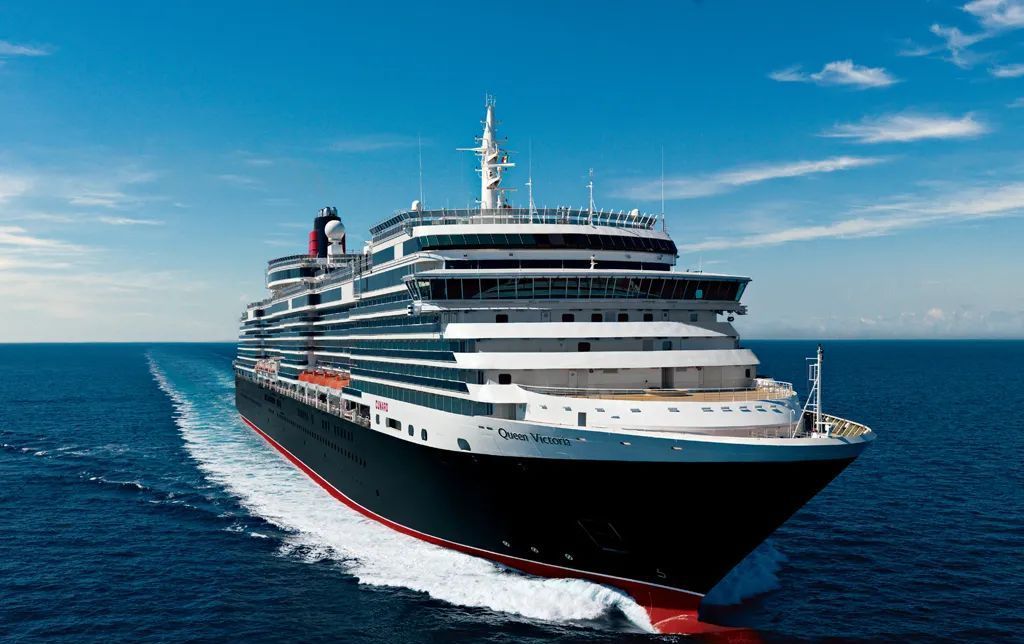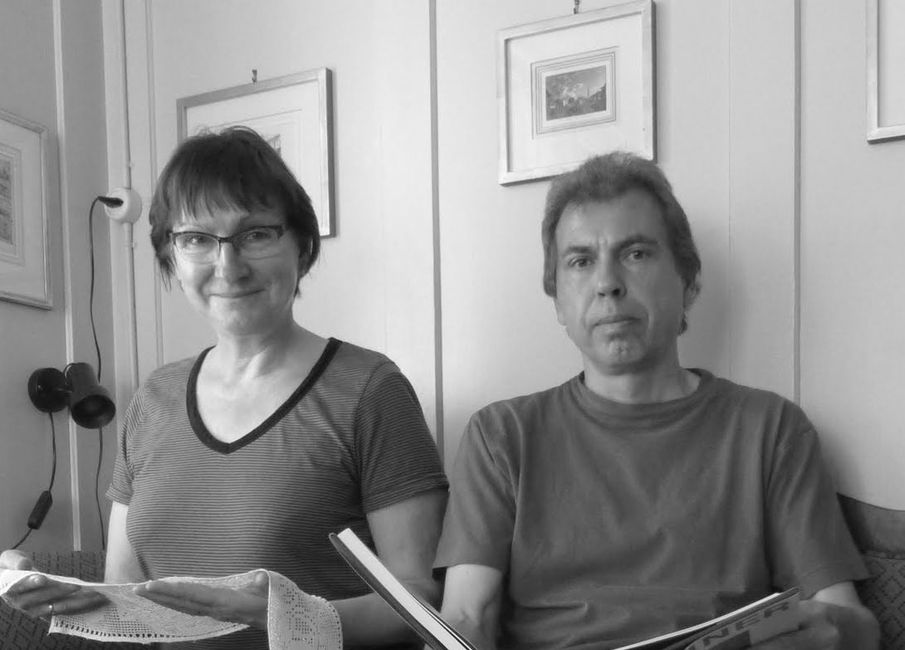Akaba - Petra, Jordan, April 11, 2023
Hoʻopuka ʻia: 12.04.2023
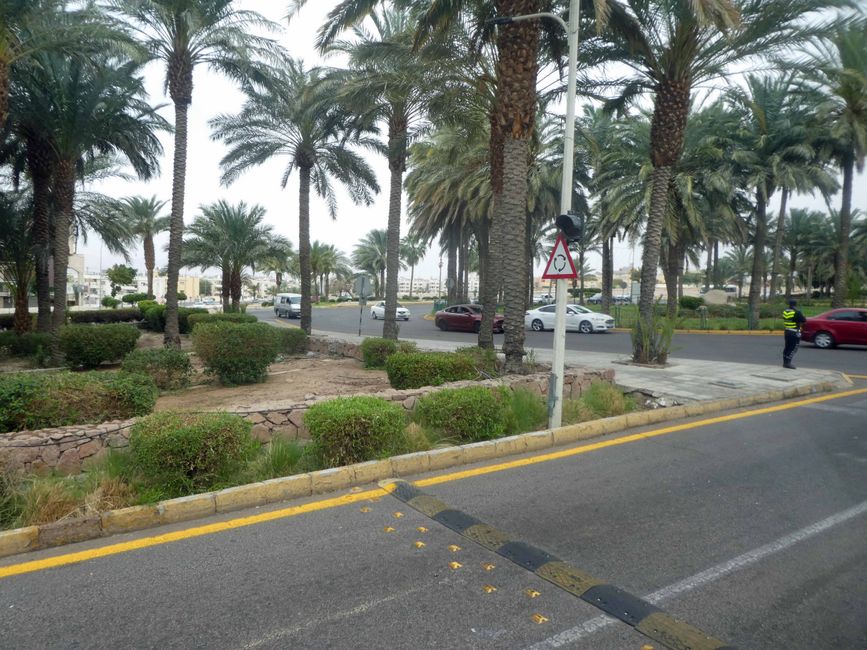
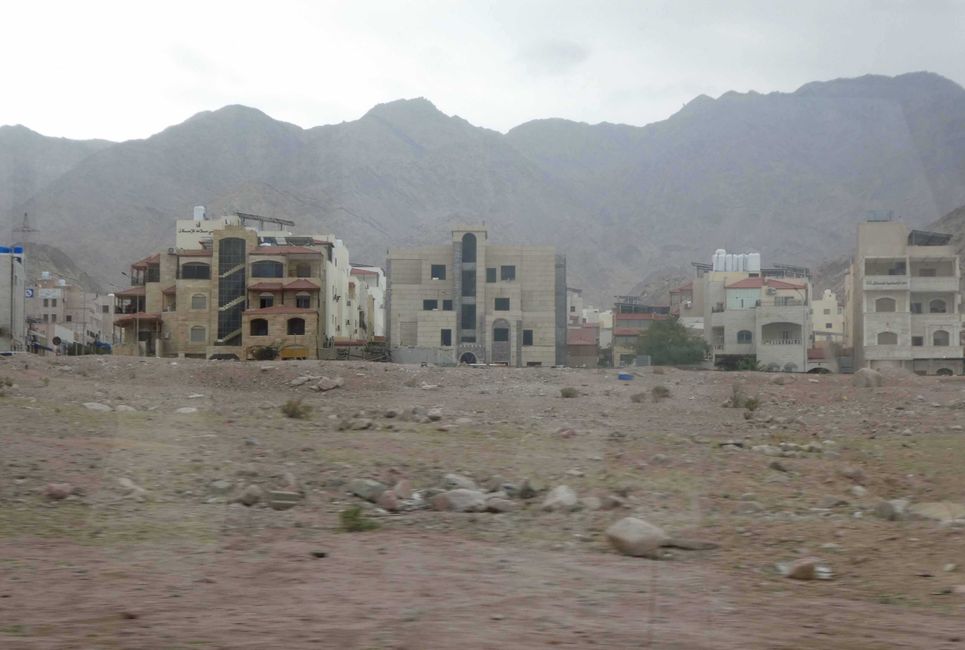
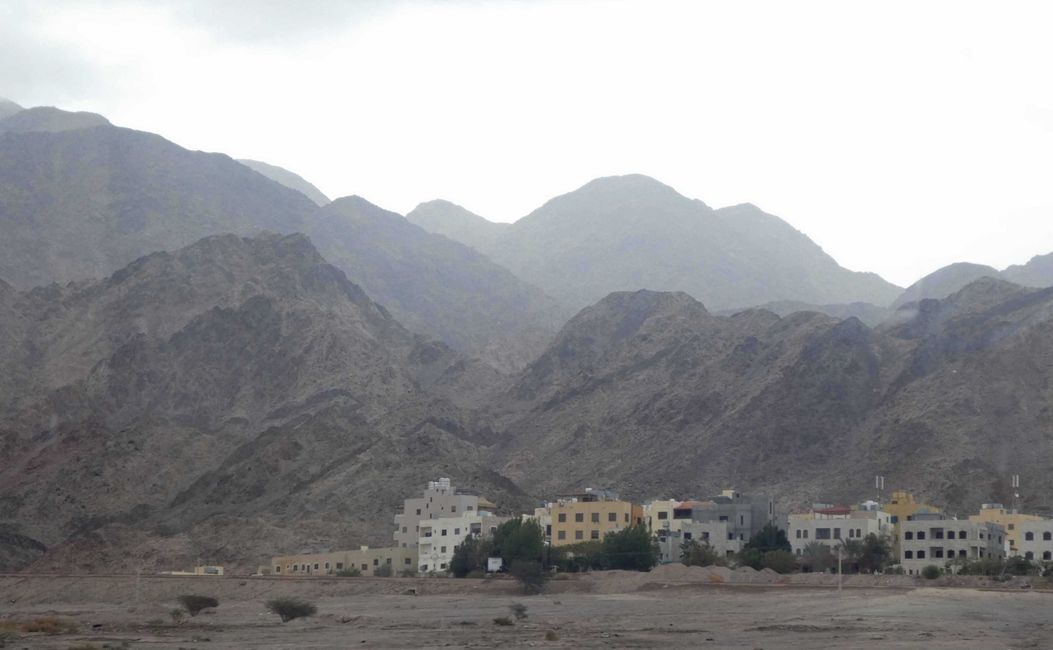
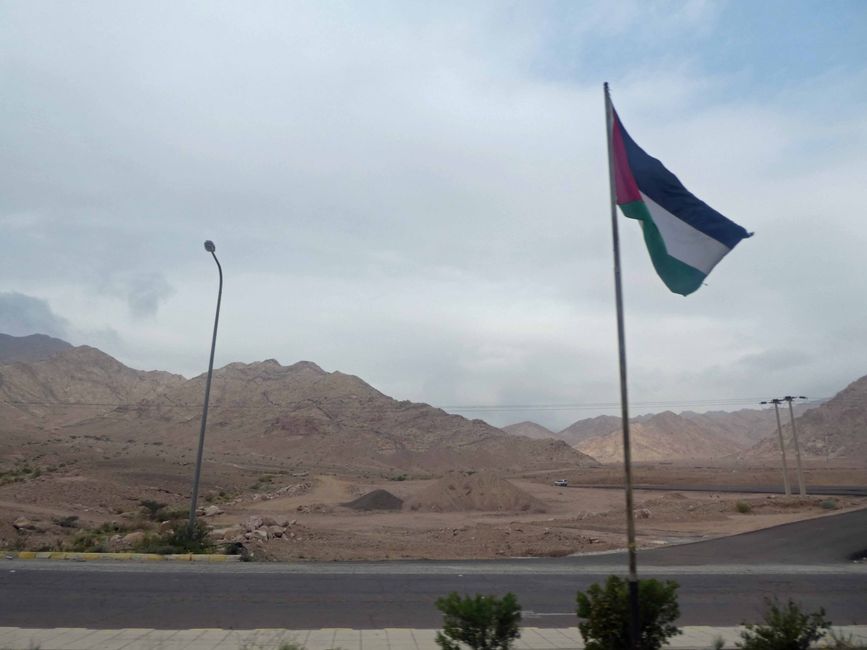
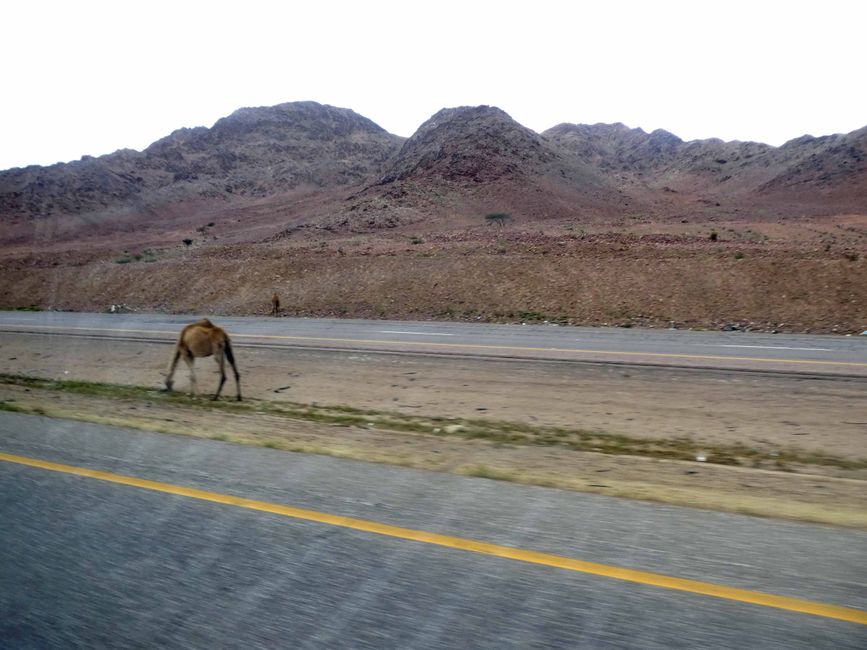
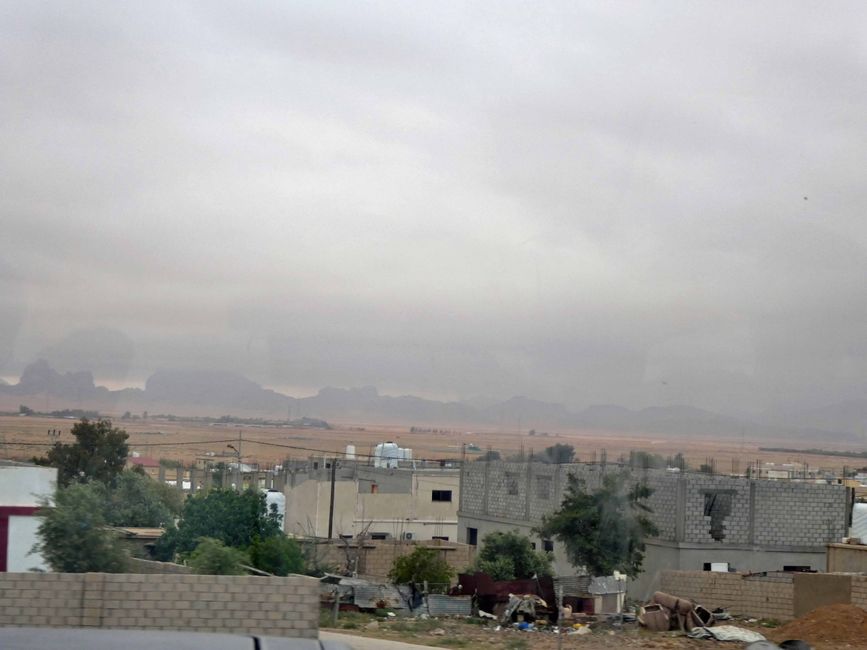
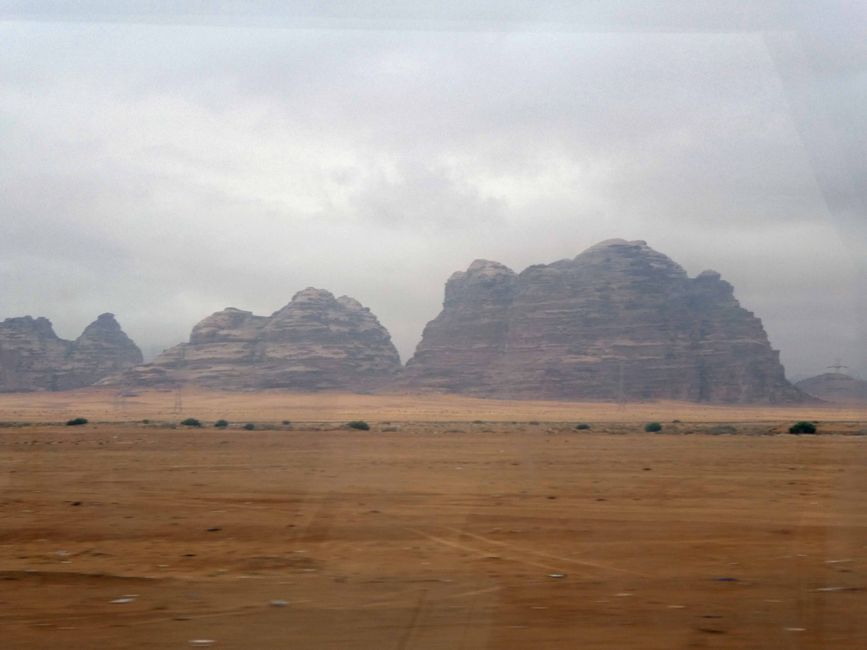
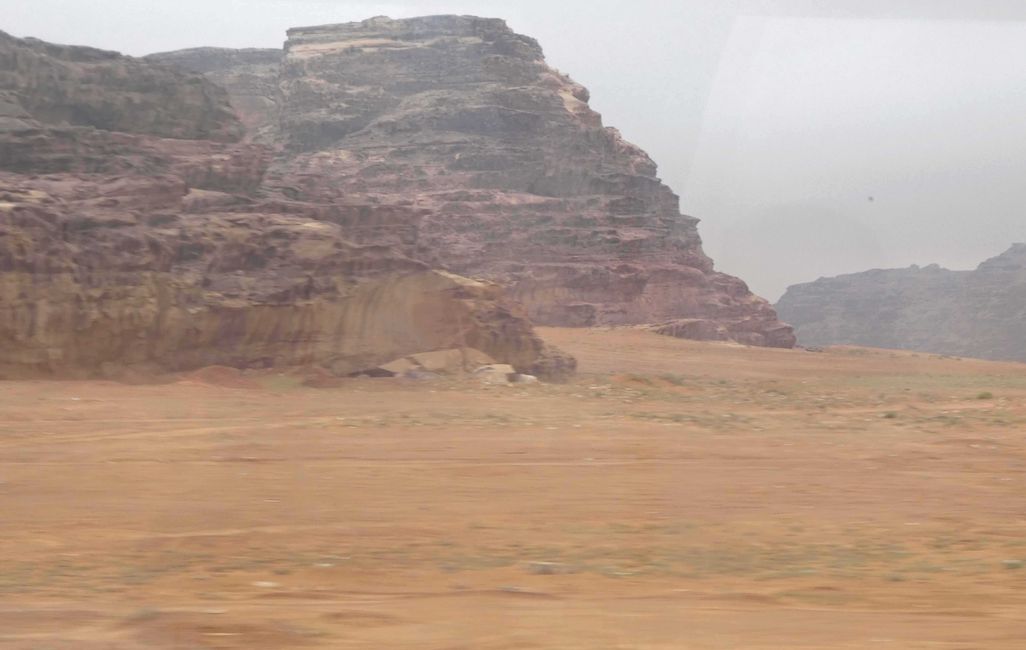
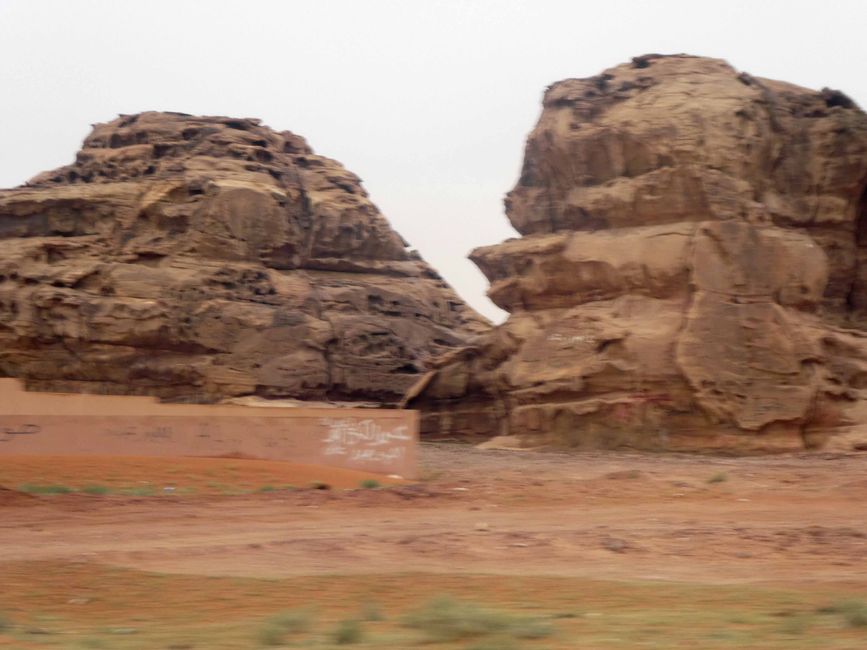
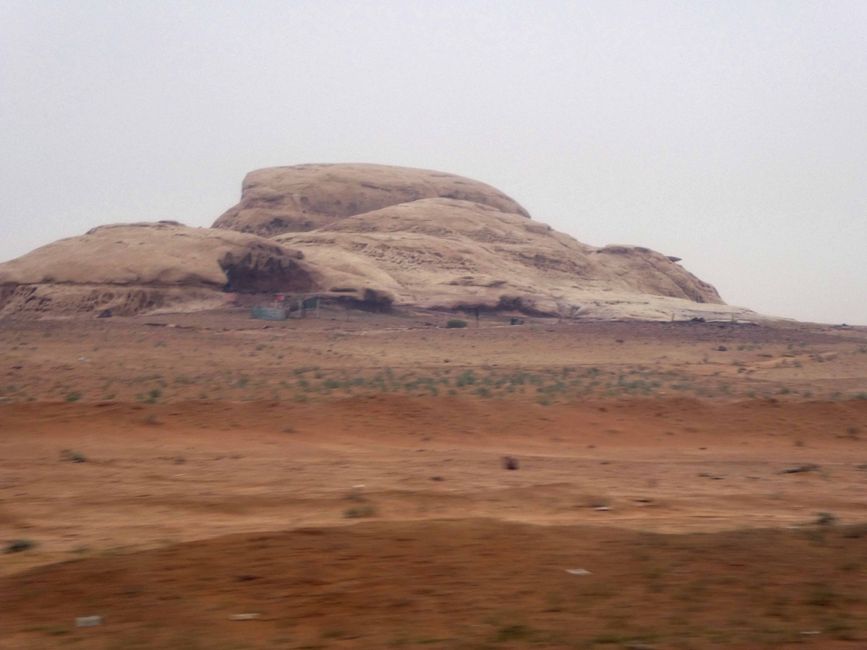
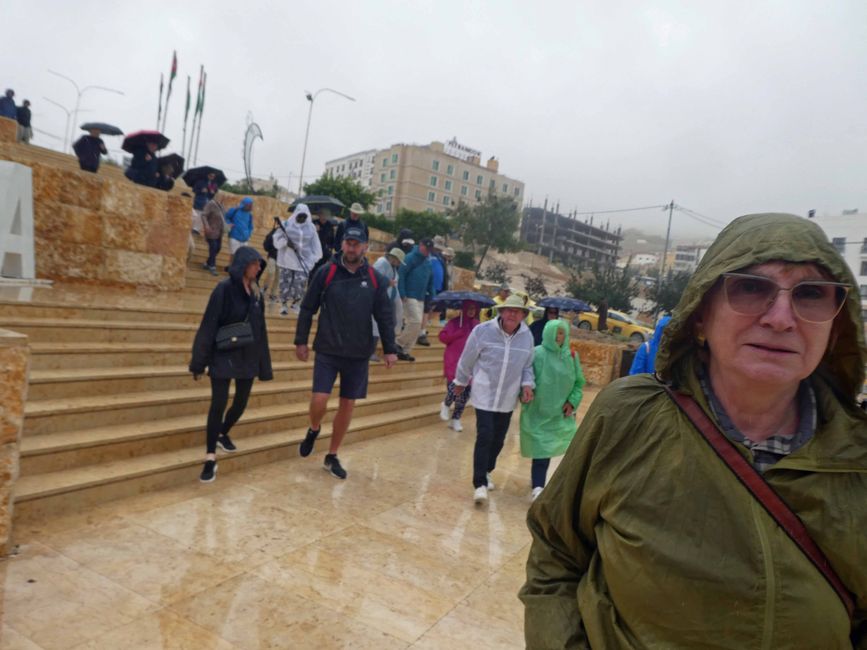

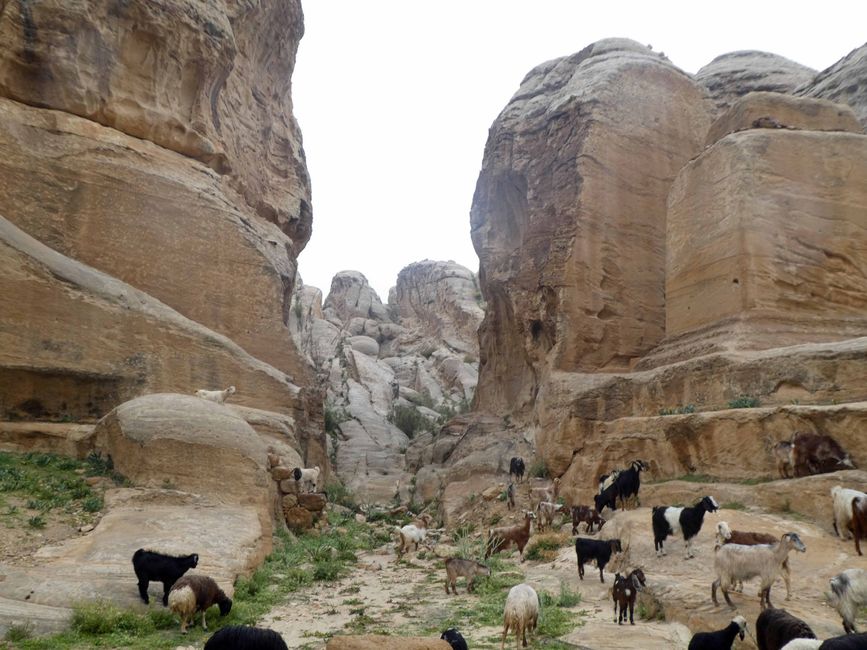
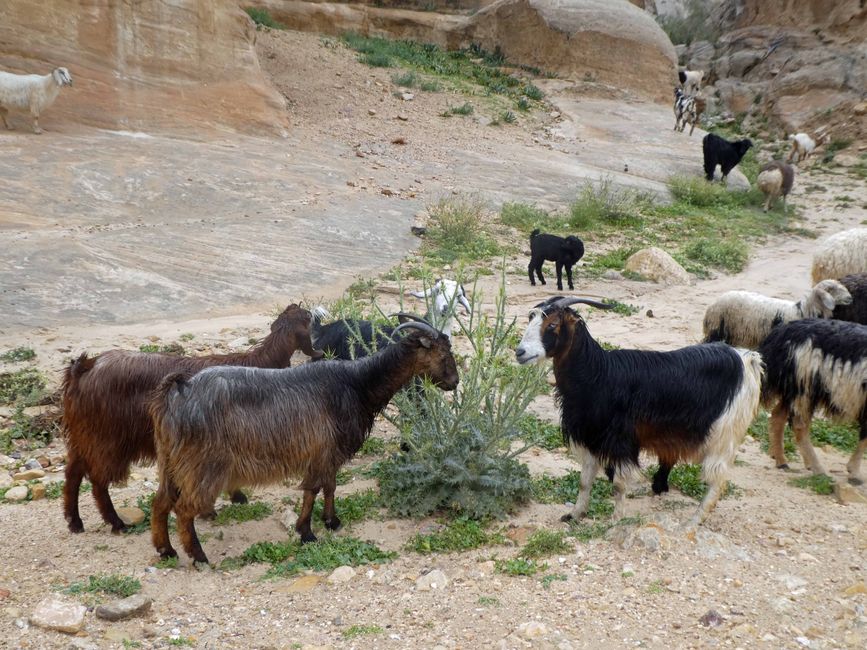
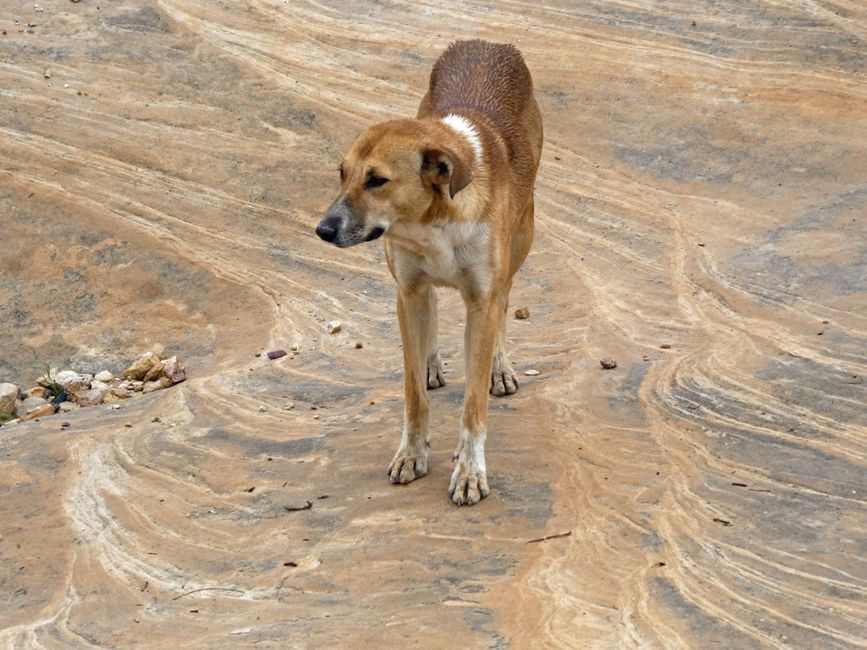
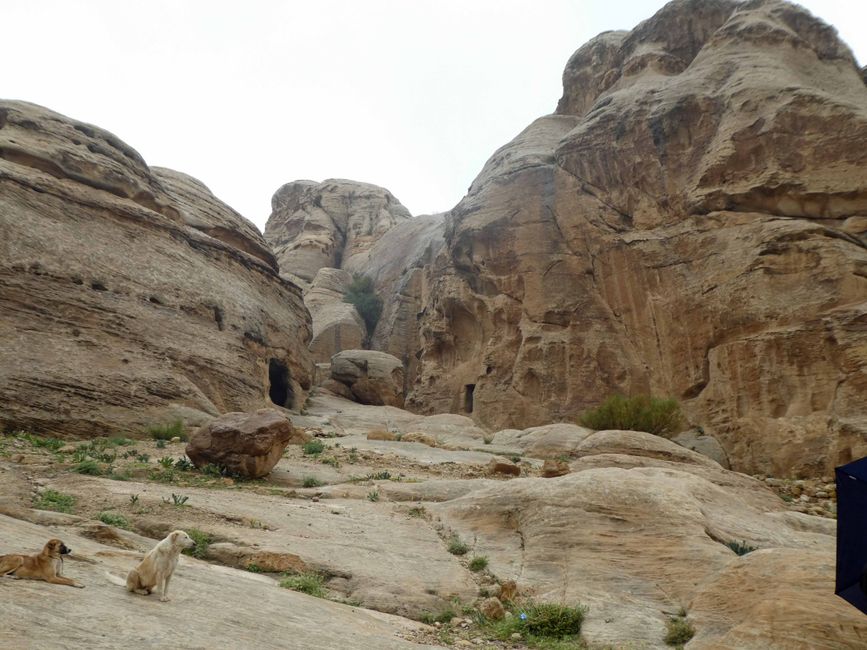
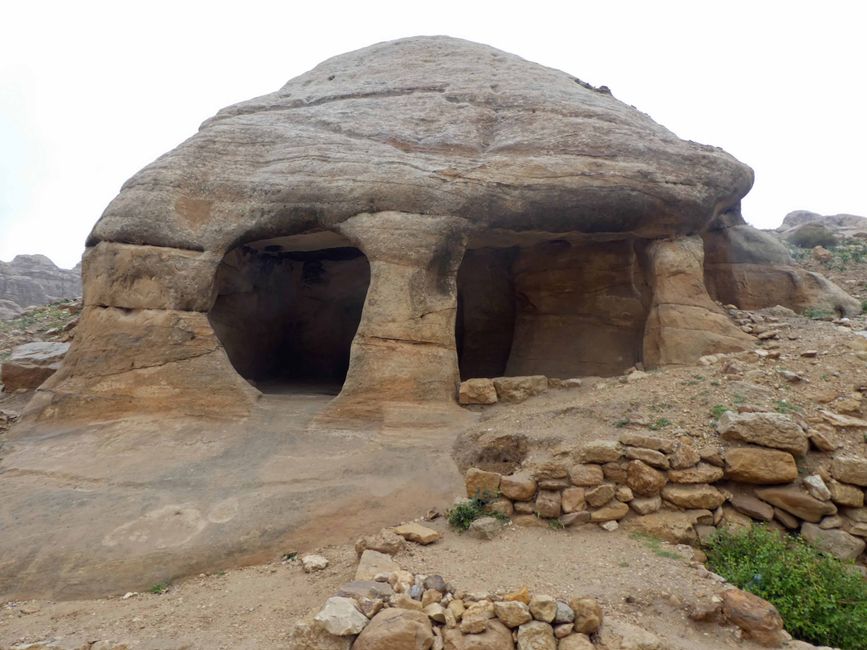
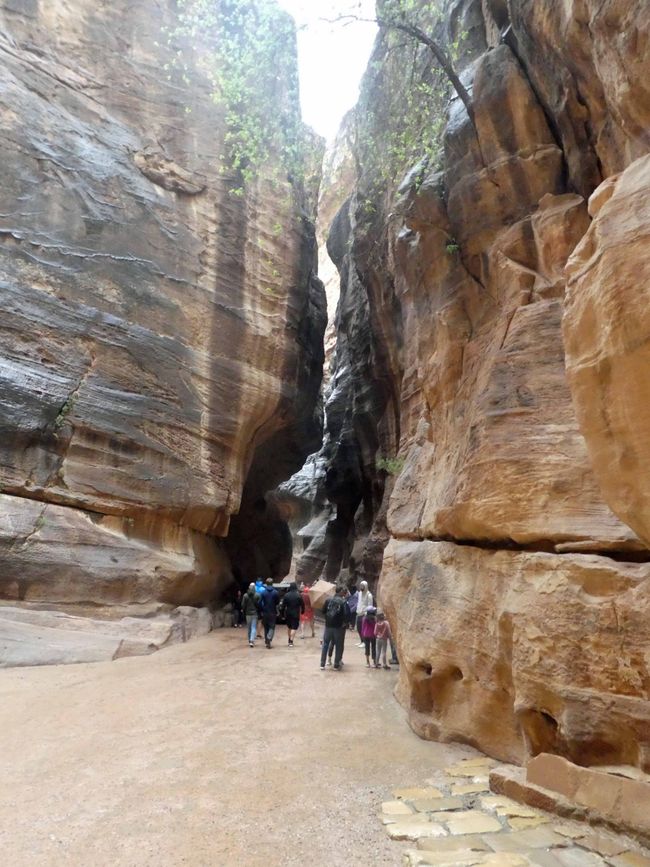
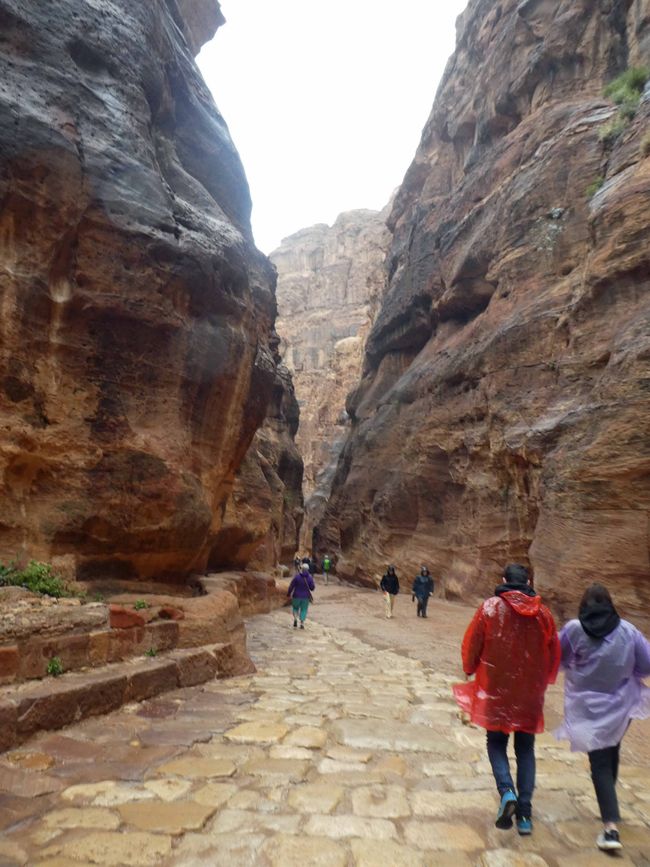
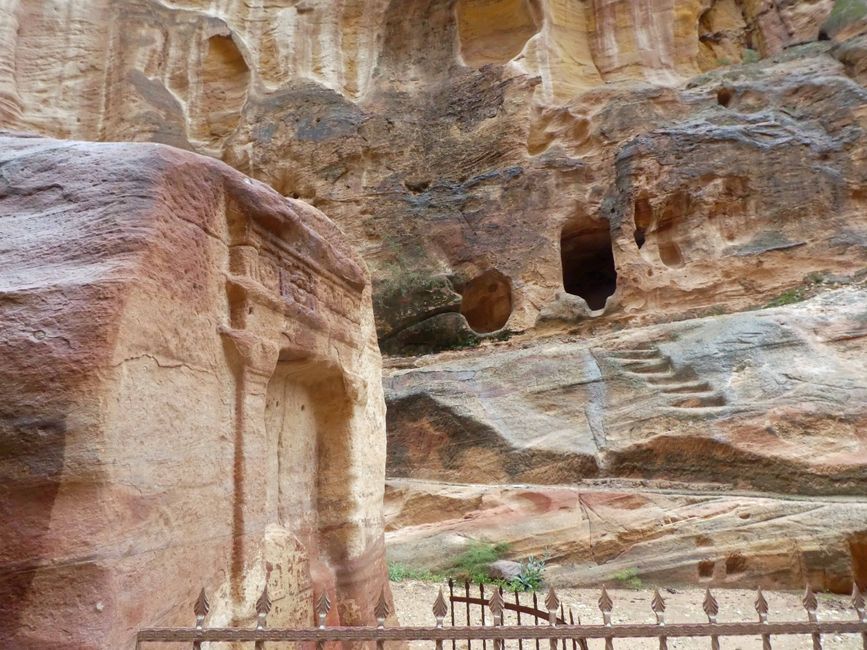
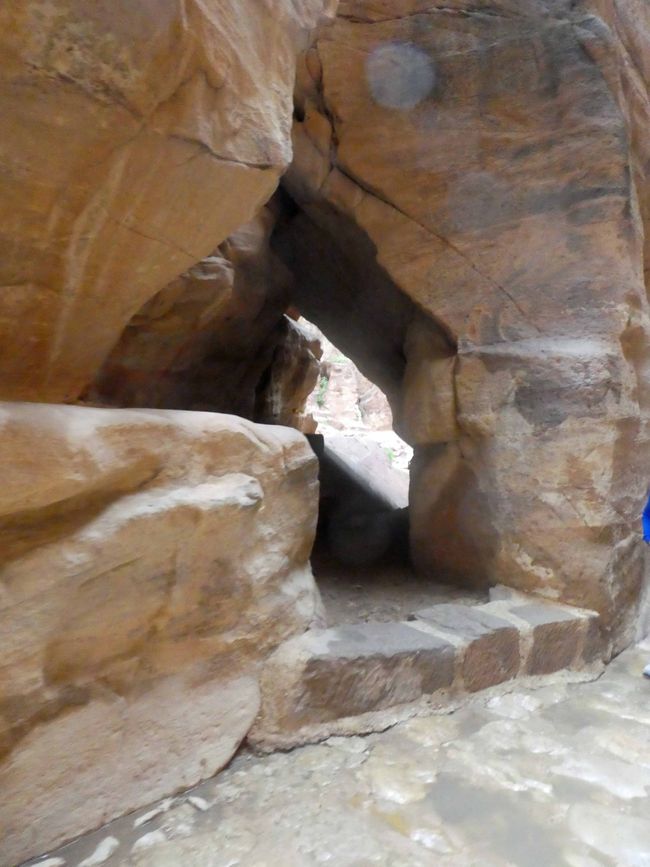
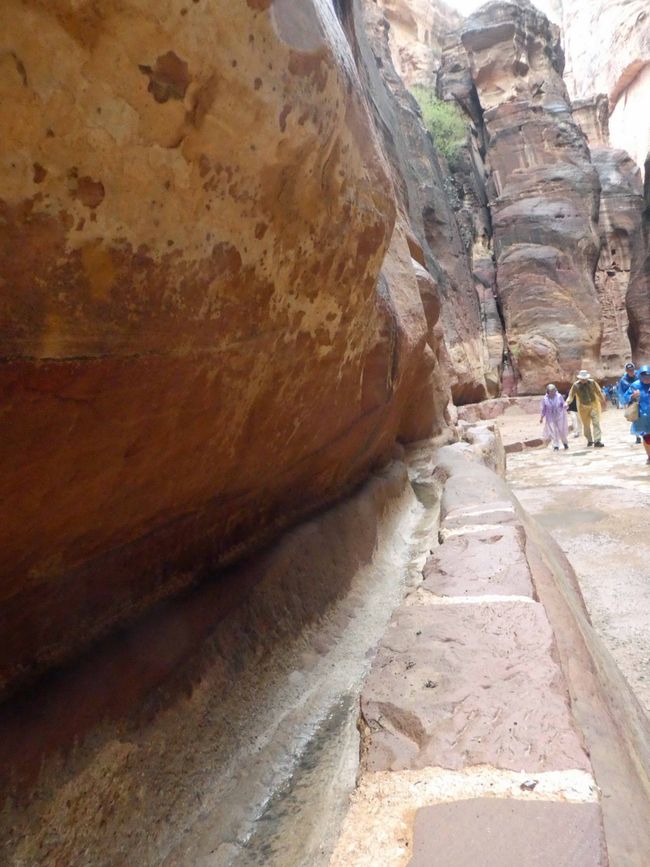
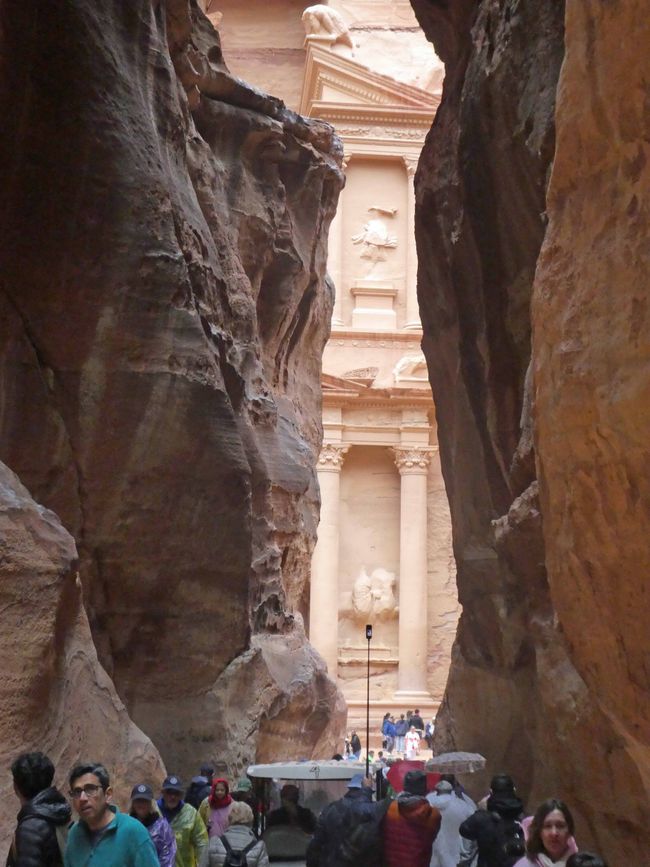
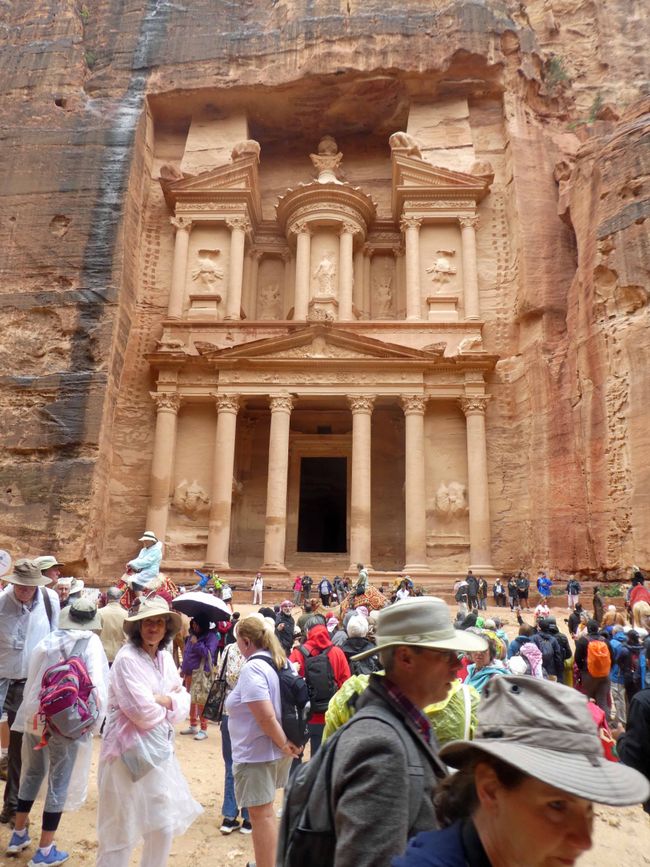
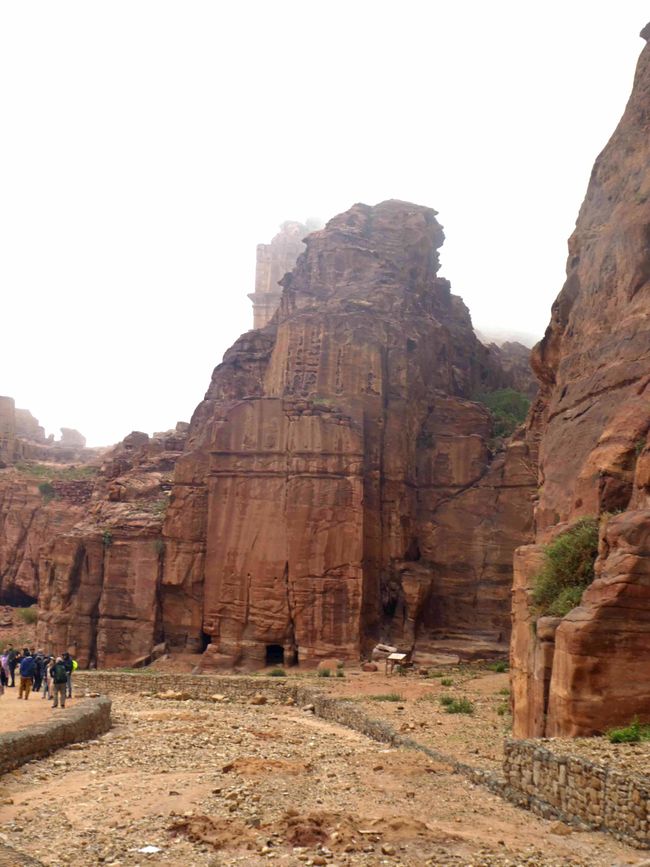

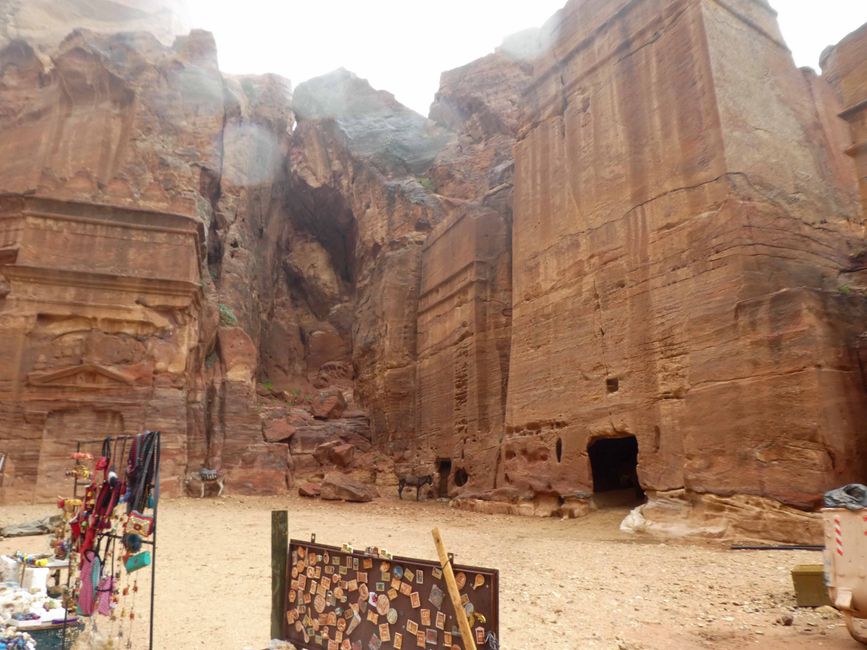
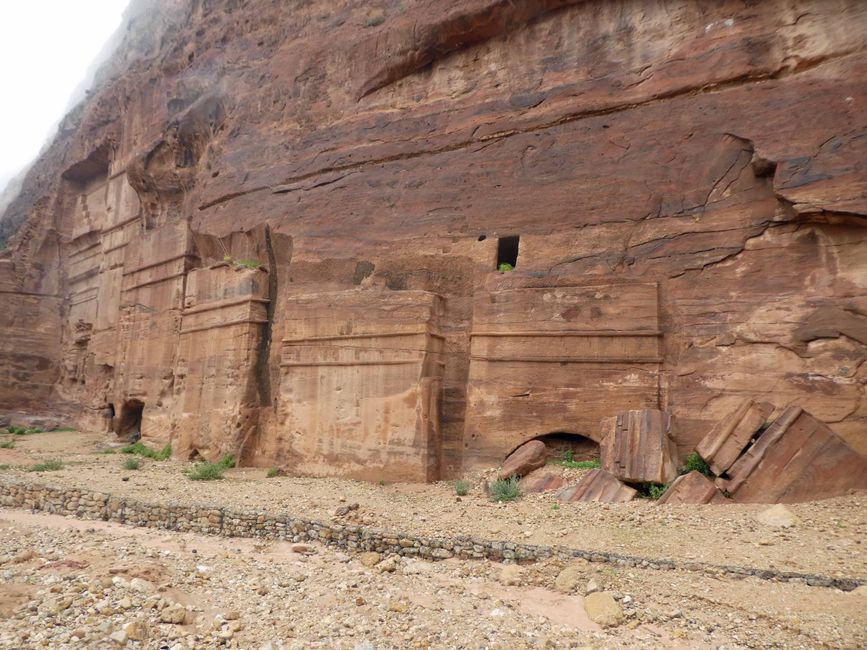
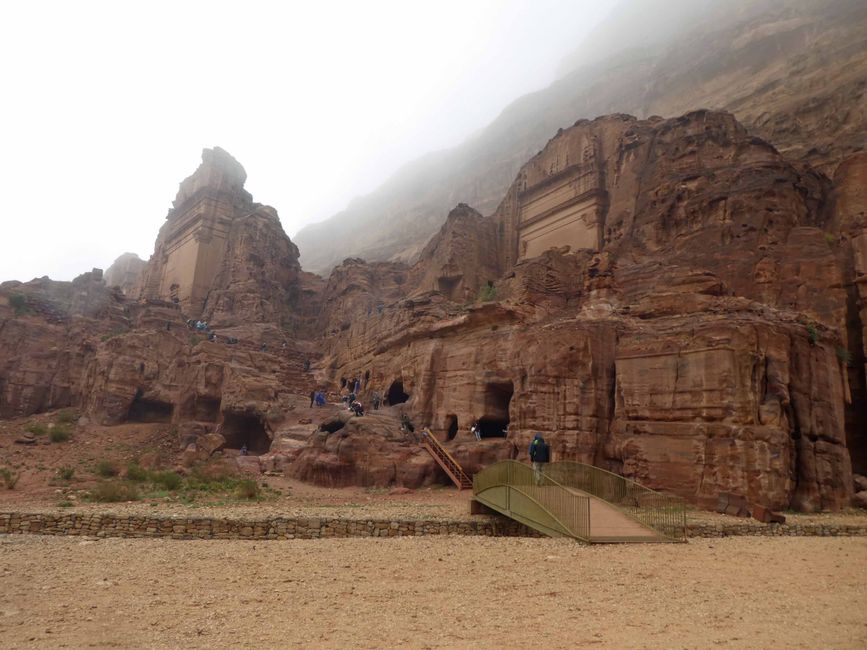
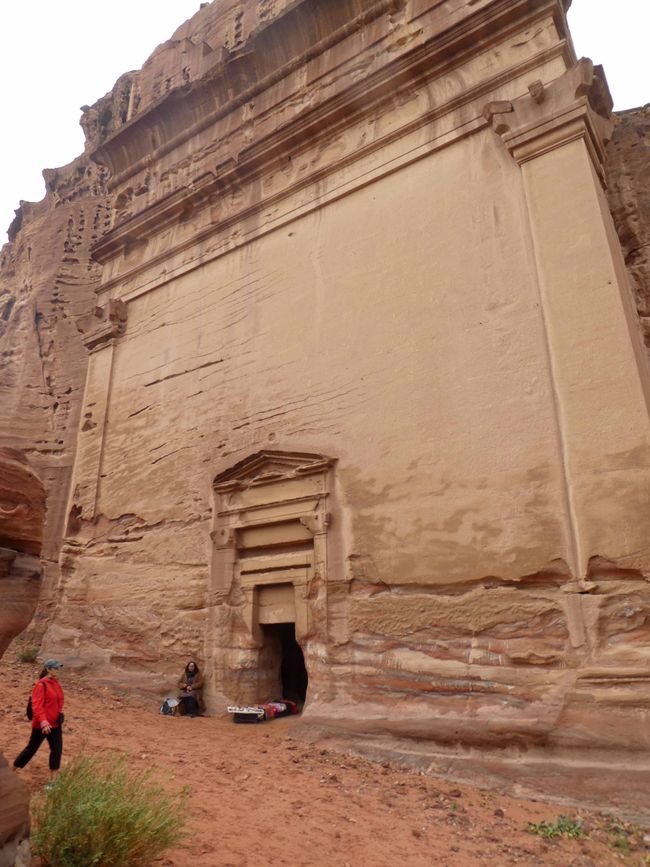
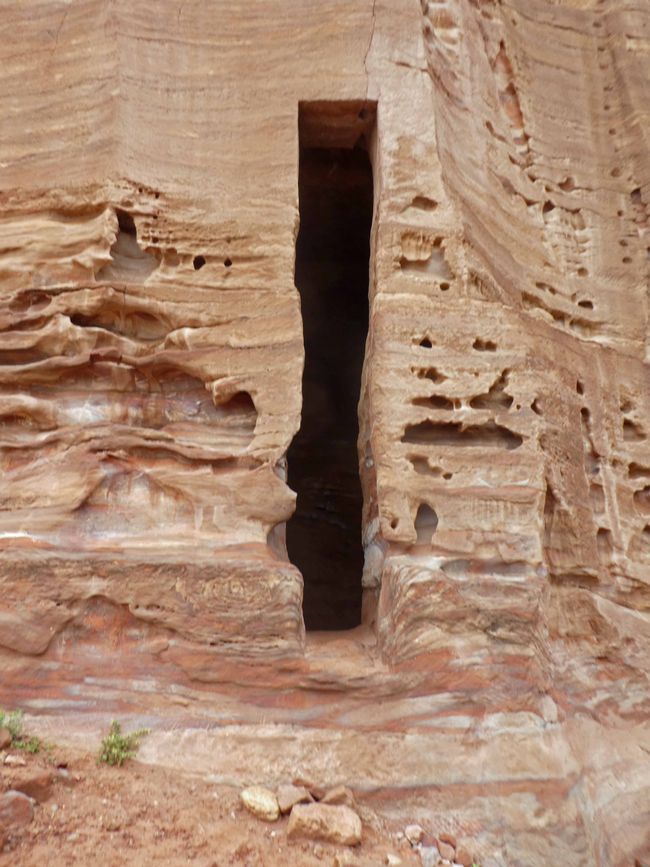
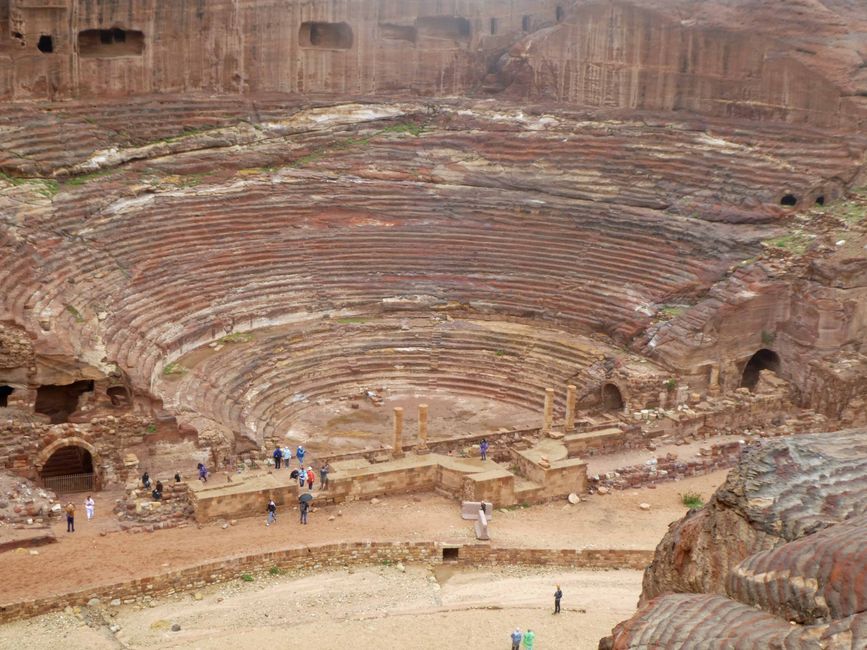

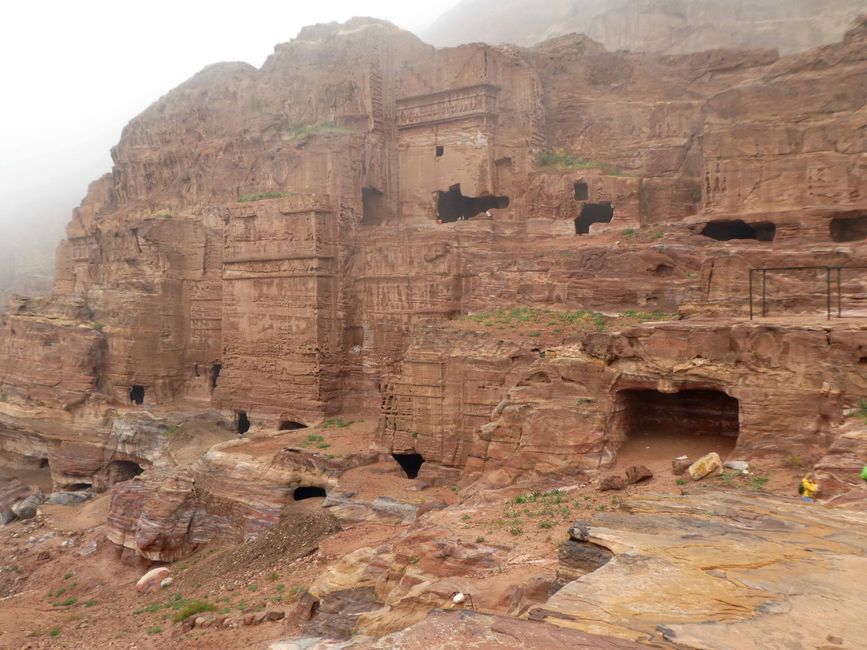
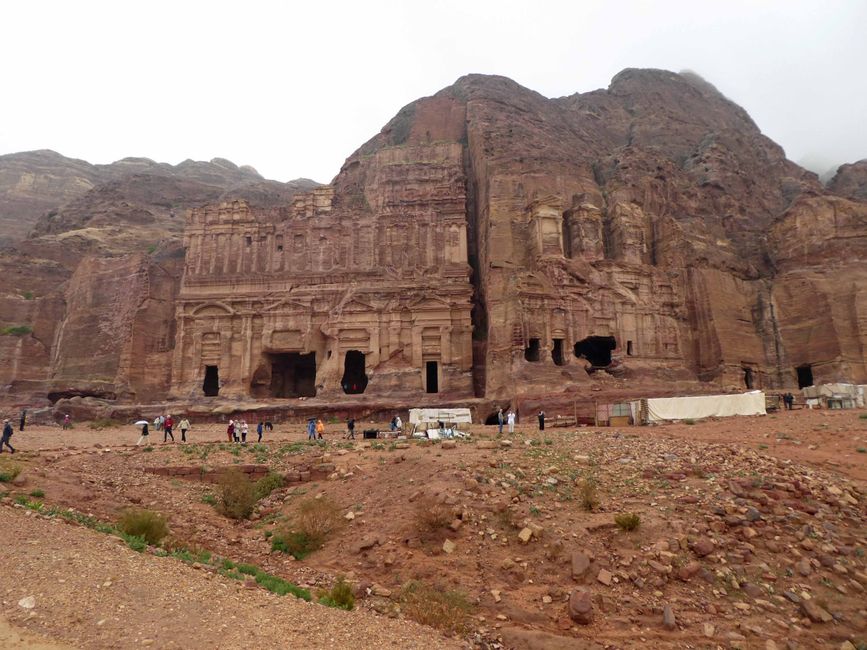

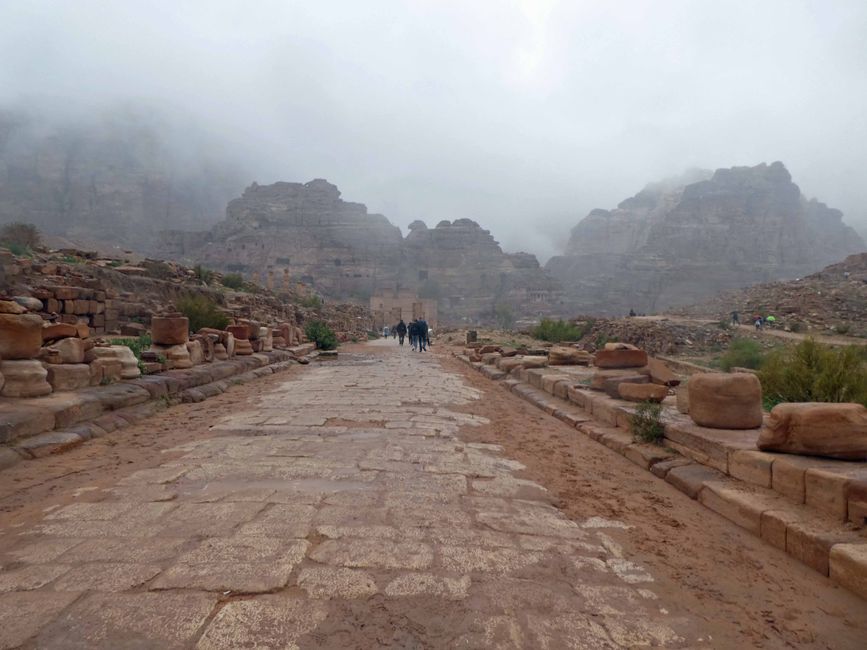
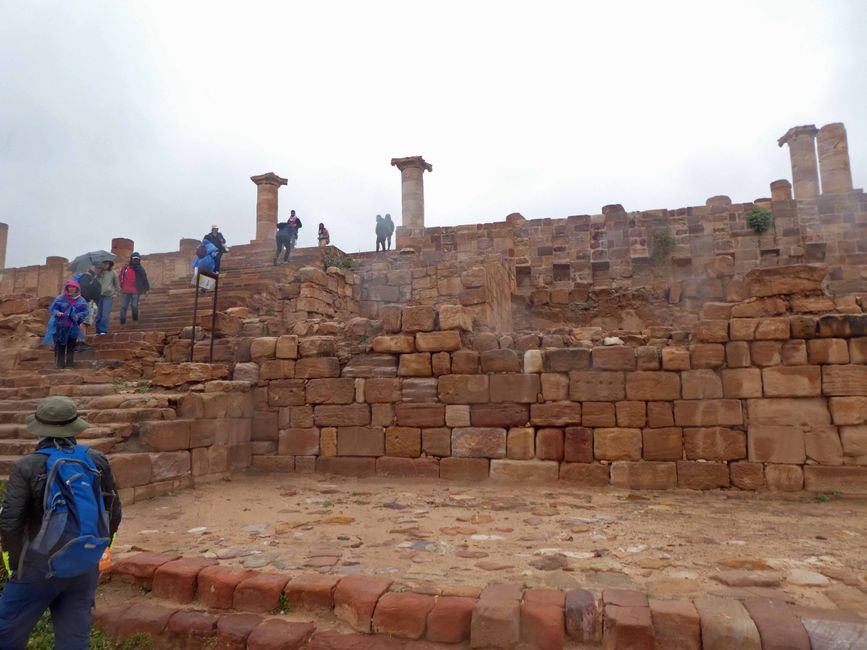
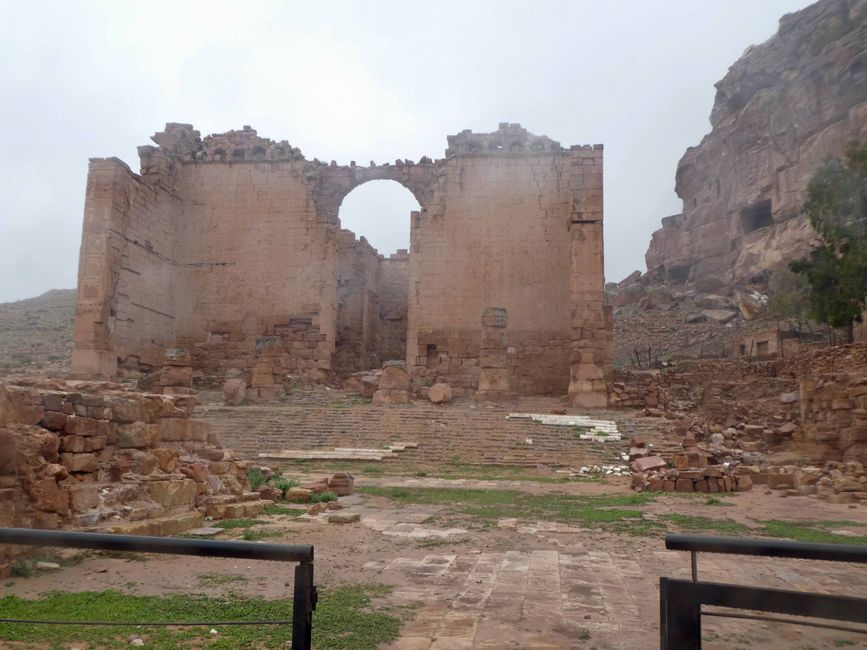
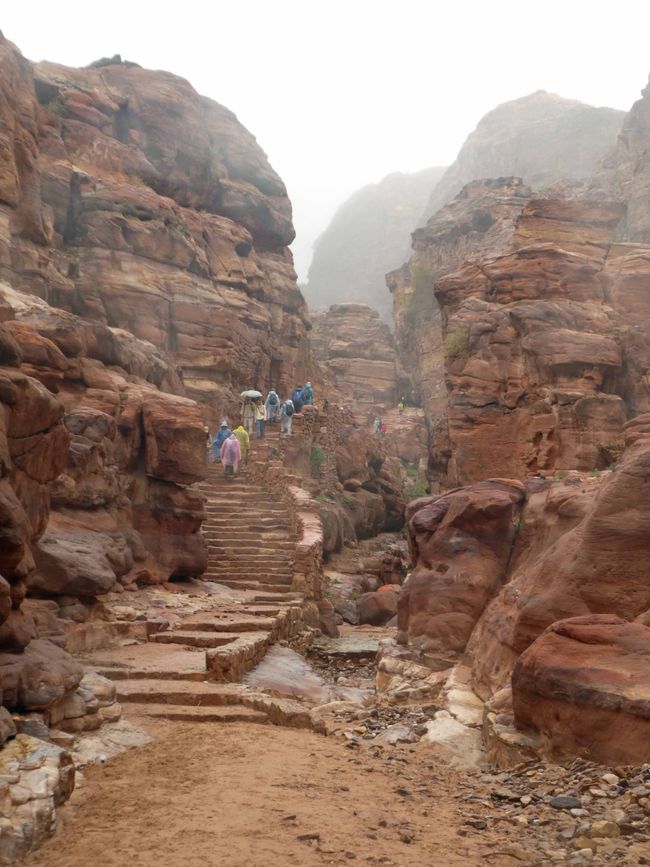
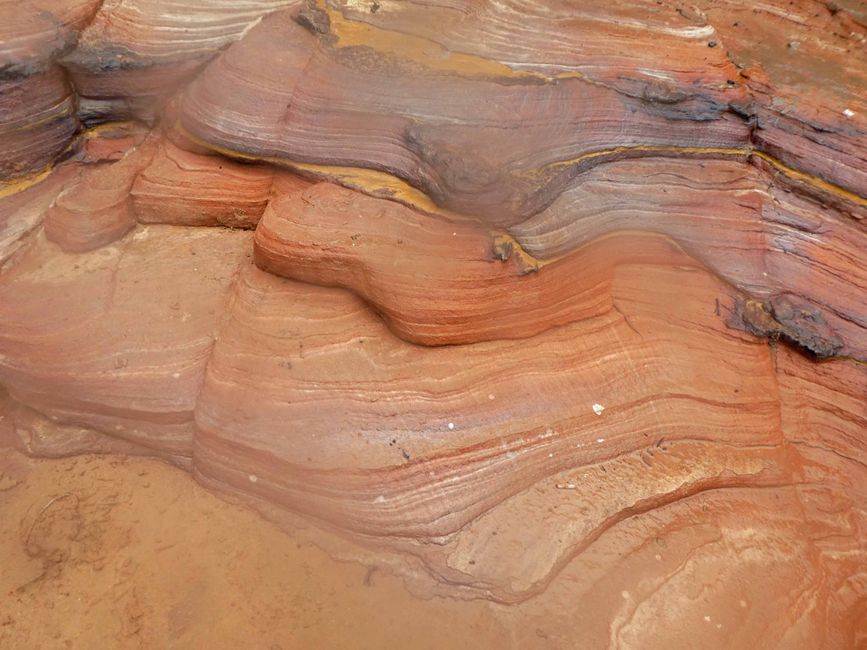
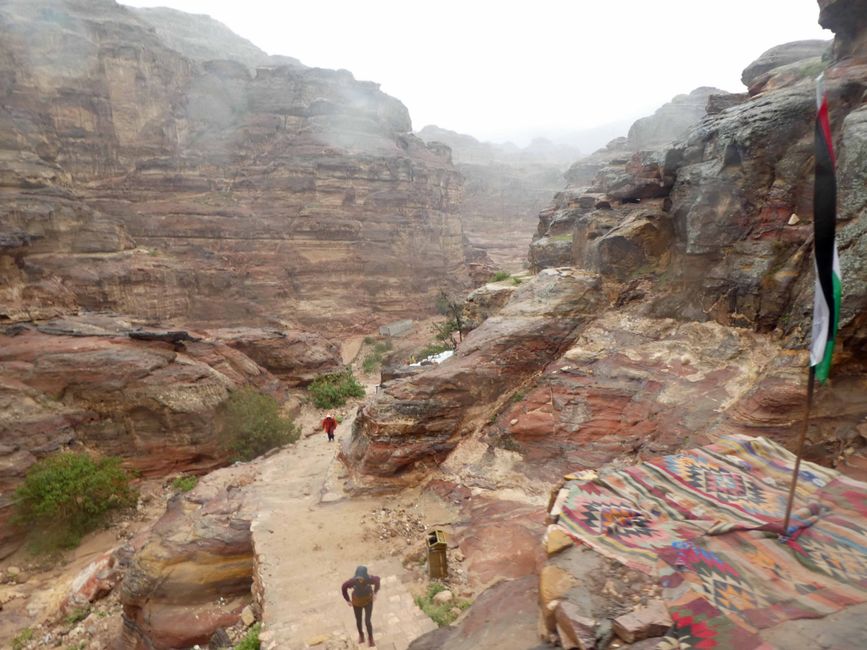
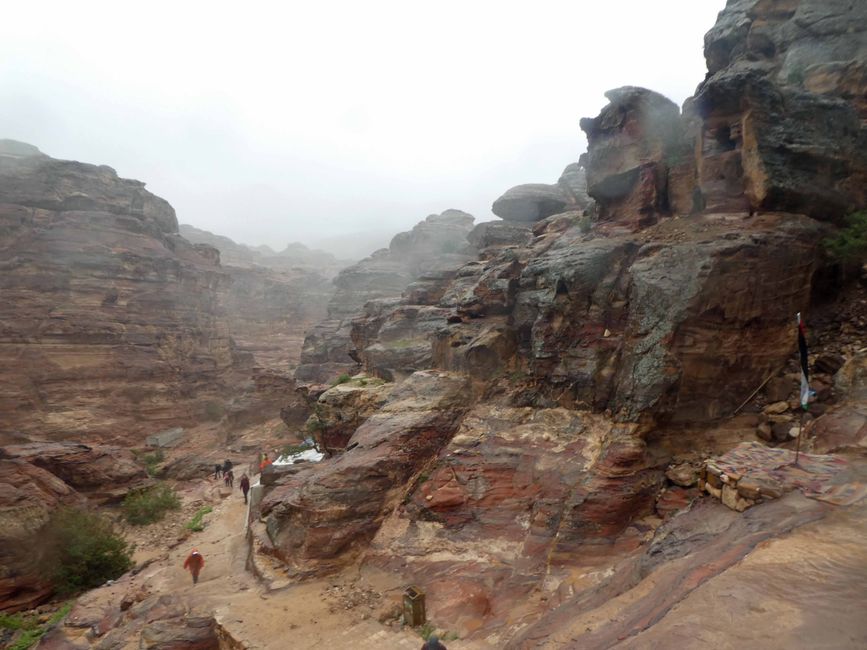
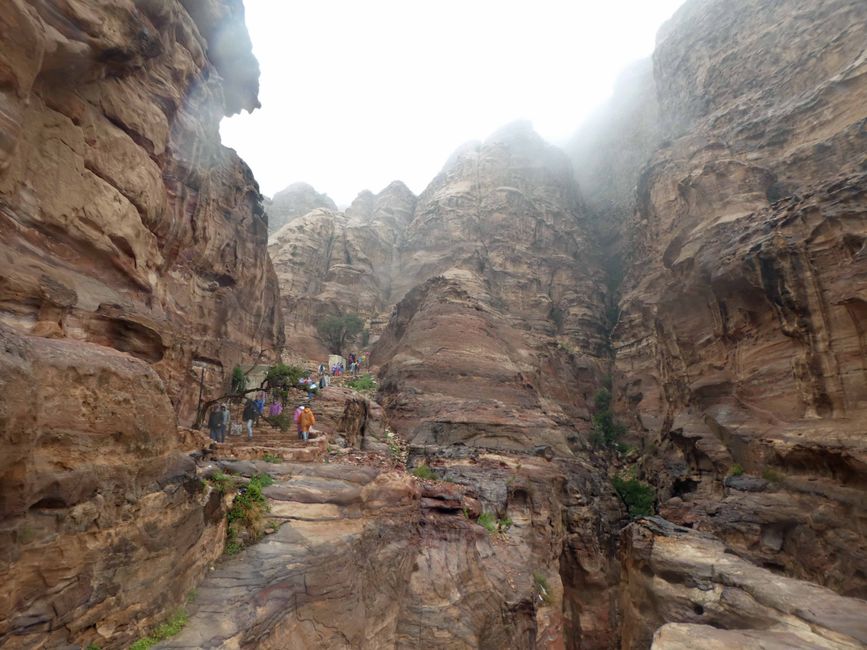
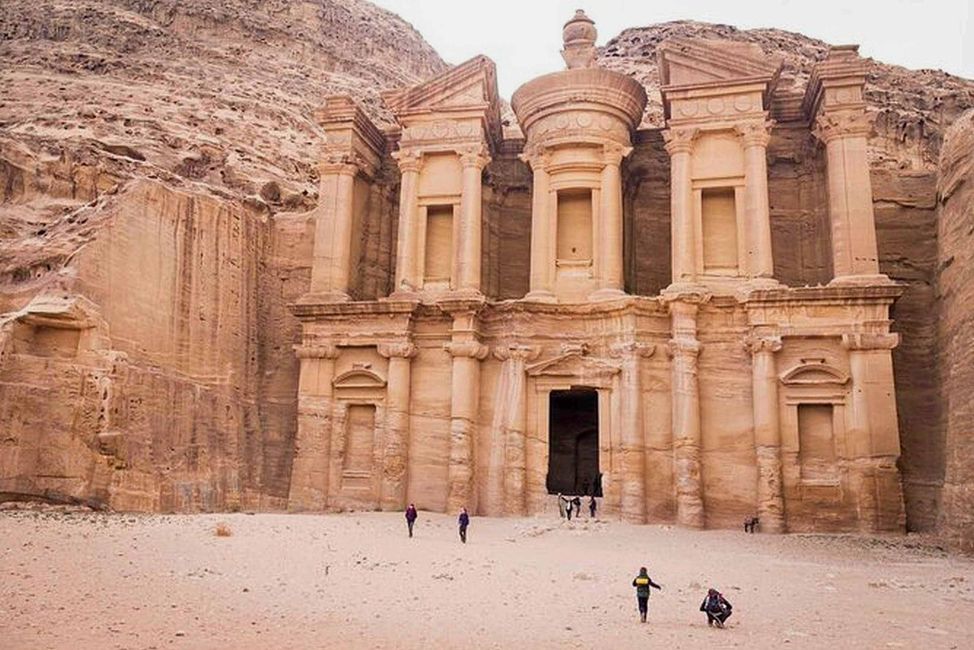
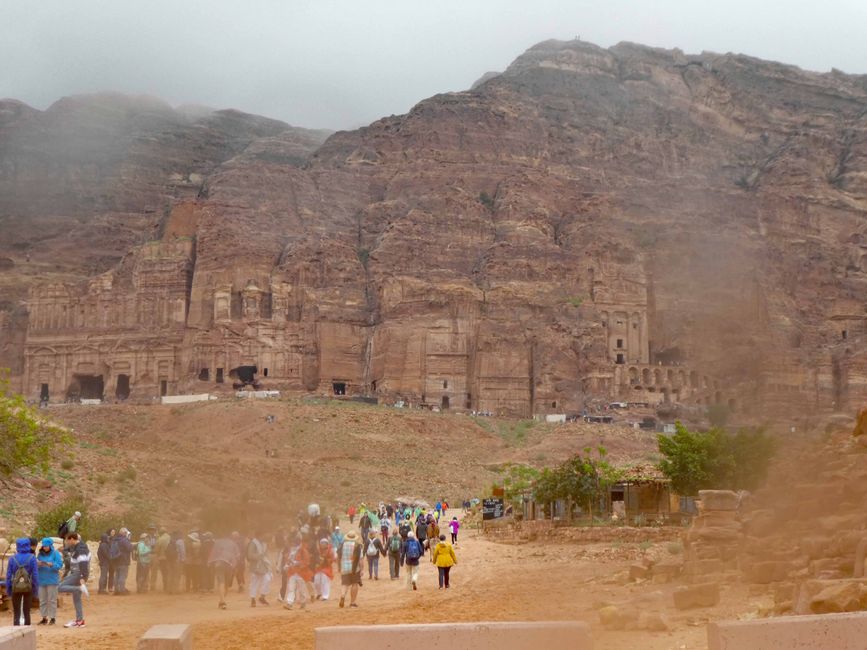
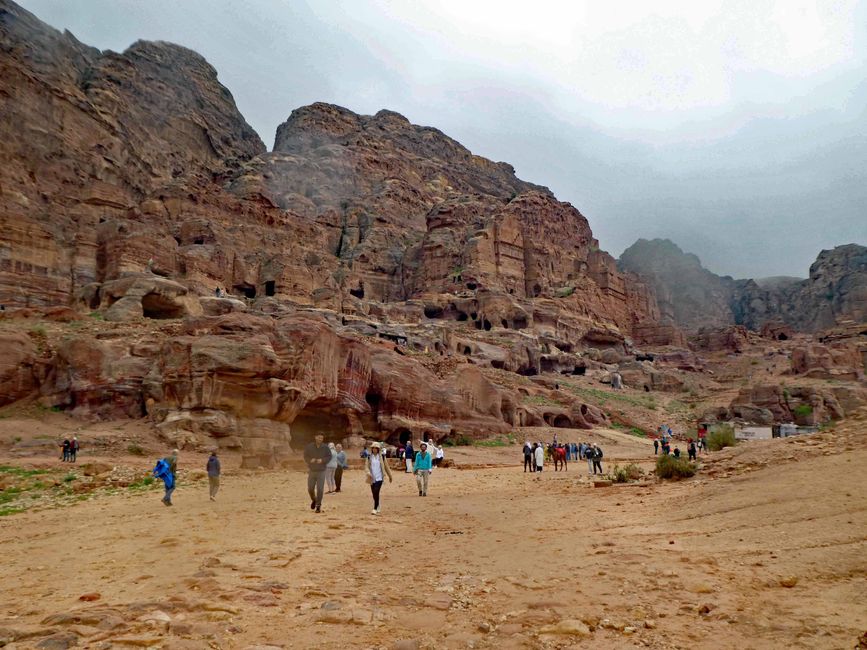
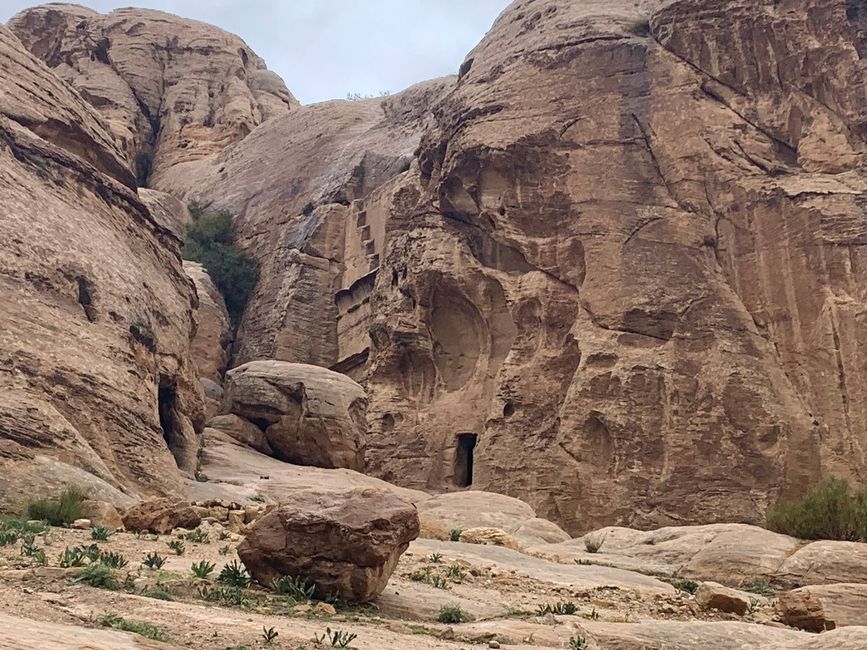
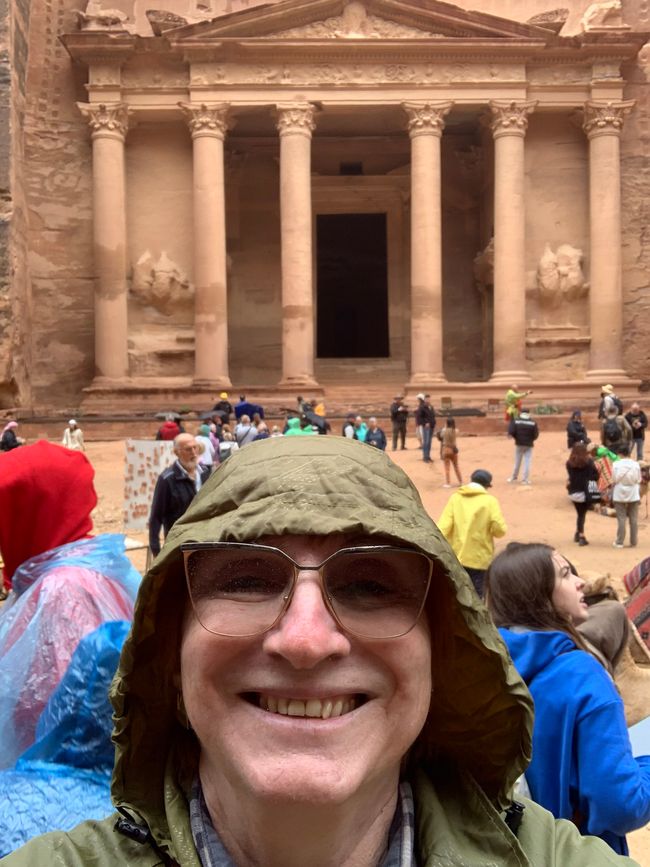
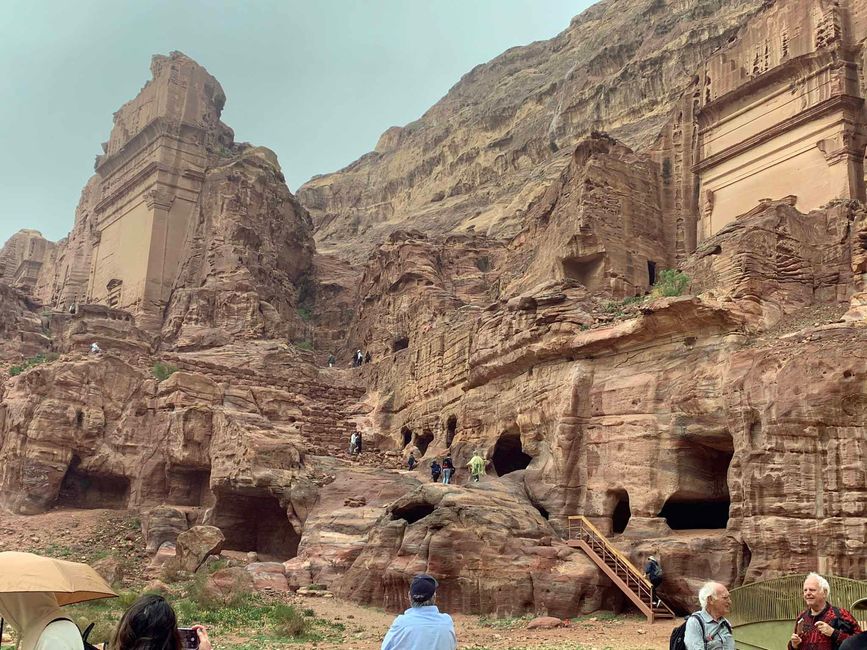
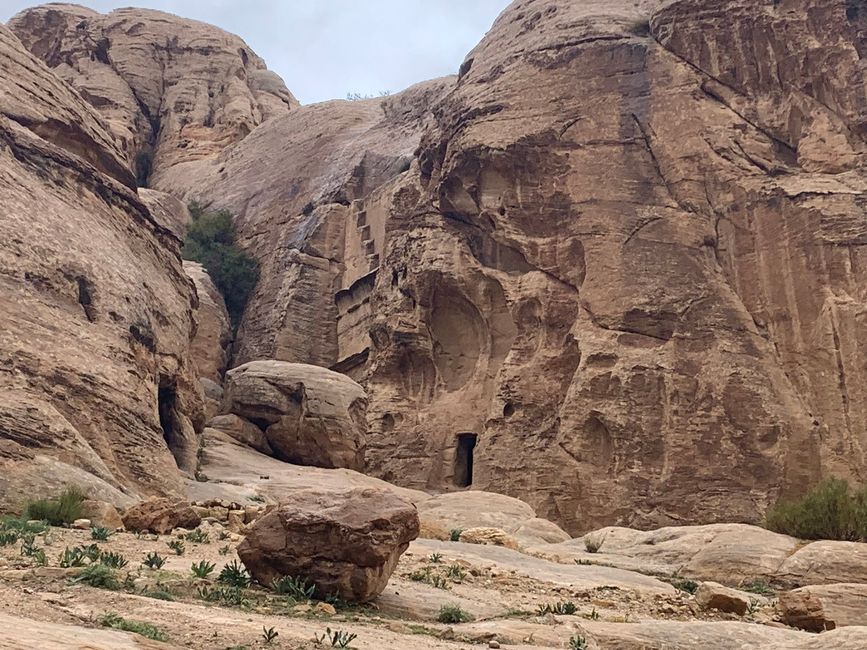
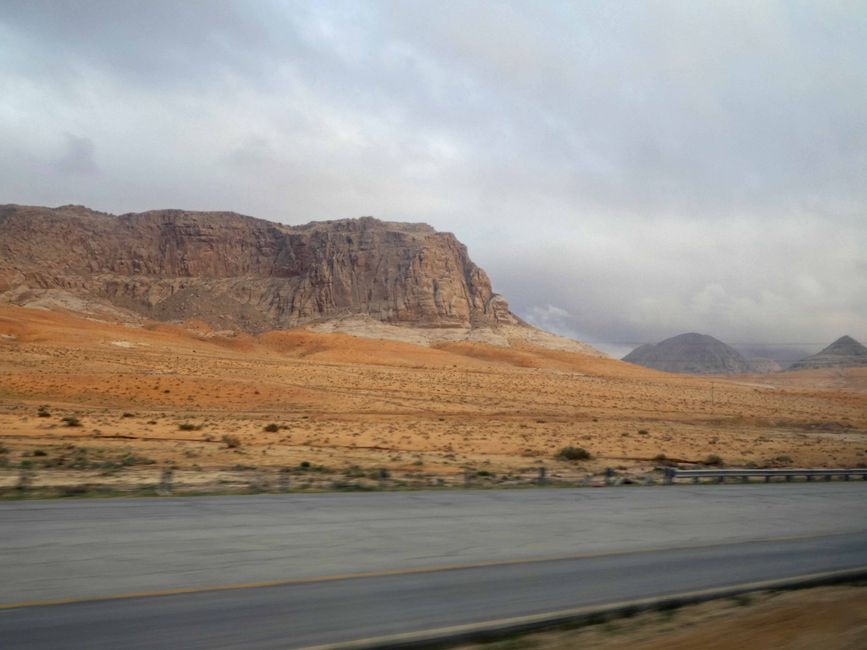
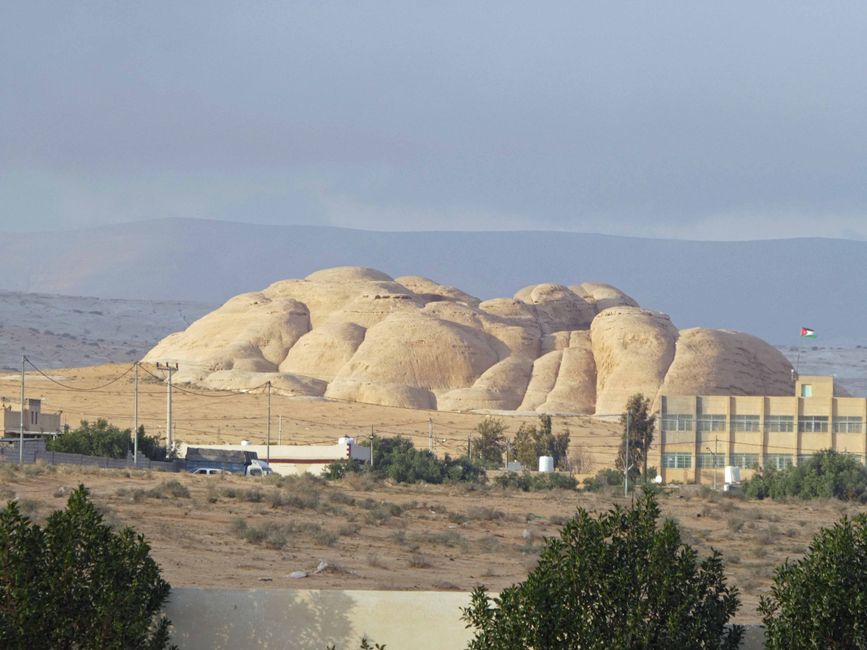
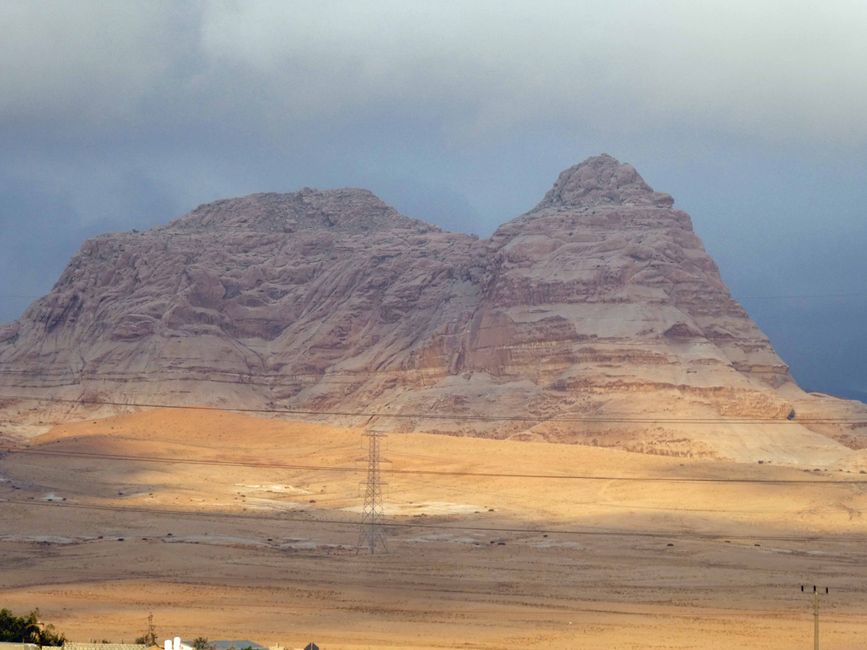
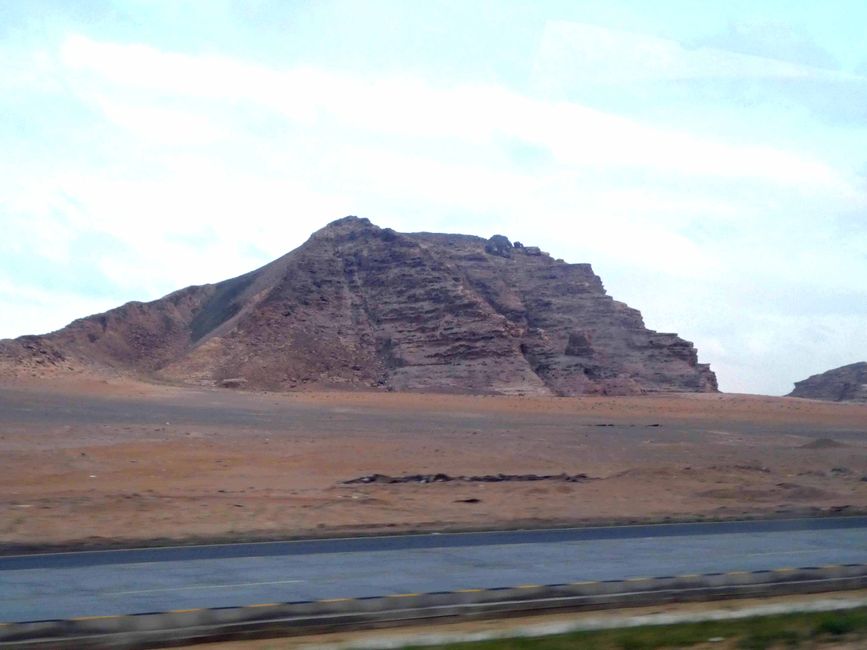
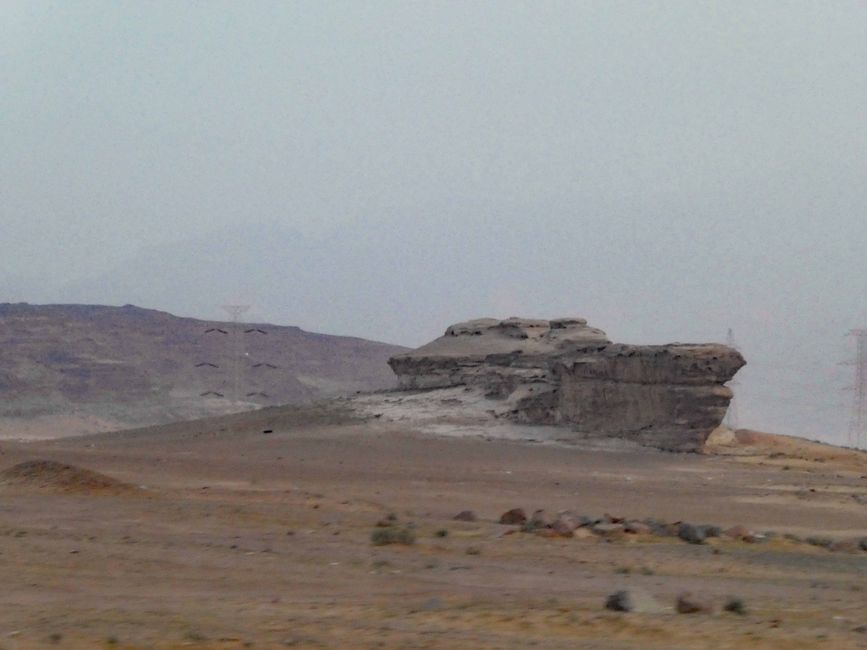
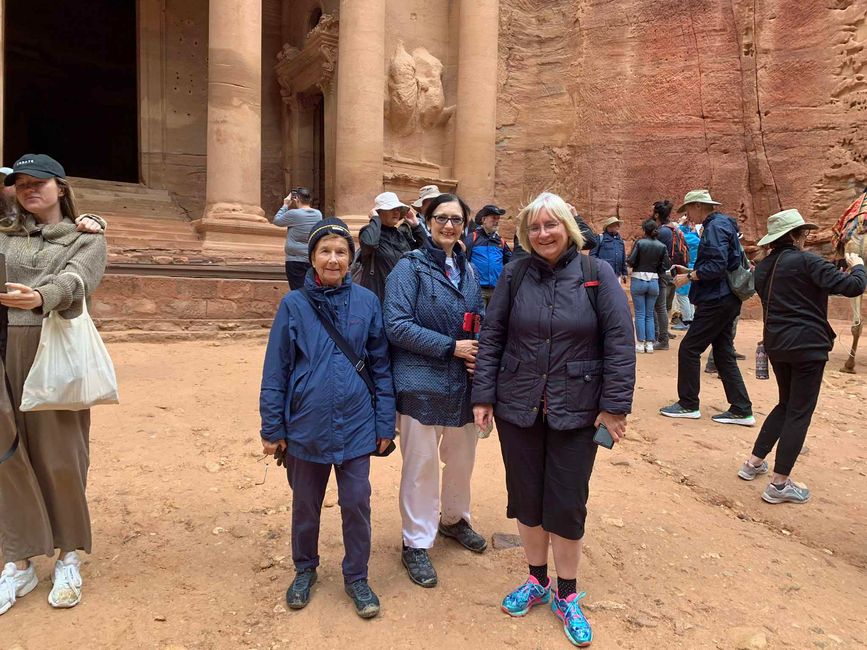
Kau inoa i ka Nupepa
As always, we arrived in the port of Akaba early in the morning. Akaba is located on the Red Sea. It is a city with around 150,000 inhabitants and has Jordan's only seaport. The city and its surroundings form a free trade zone.
It is not an ultra-modern city like Abu Dhabi or Dubai. Jordan also seems to be significantly poorer, which is not surprising with an unemployment rate of 30%. However, the city center is attractive, while the surrounding areas are not as nice, and there is a lot of garbage everywhere.
The journey from Akaba to Petra takes about two hours. It took us a little longer because the highway was partially closed due to recent storms, and there was an accident on the detour route.
The landscape is quite spectacular, with a lot of desert and strange, multi-colored rock formations. Unfortunately, it also rained, and combined with the cool temperature, there was dense fog at times. The photos reflect this, and there was occasionally water on the camera lens in Petra.
The Nabataean rock city of Petra had its heyday in the first century AD and was located at a trade junction. It included a port on the Red Sea and in the Mediterranean. It provided logistical services for transporting goods from the Red Sea to the Mediterranean, which reportedly cost about a quarter of the value of the goods themselves. With the Romans changing trade routes, the importance of the city declined, and a later major earthquake probably finished it off.
The city had a large surrounding area for both agriculture and irrigation. The Nabataeans were apparently excellent in water engineering and even built reservoirs. However, the area had already been inhabited since the Stone Age, before the Nabataeans.
Petra is sensational. We knew how long the access through the gorge to the heart of Petra was, but it was still longer than expected. There is already a lot to see in this access, such as herds of sheep and goats, inhabited caves, small rock buildings, small and large water channels, and, of course, a huge number of other tourists until you finally reach the Treasury of Petra.
Unfortunately, we only had three hours to visit, which is just enough to walk the main path and see a few side attractions. This time is not enough to visit the museum, various current excavation sites, and more.
Tomorrow we will continue to the Suez Canal and merge there. That means the day after tomorrow we will anchor at the canal entrance until we pass through early the following morning and then continue towards Naples in the Mediterranean.
Kau inoa i ka Nupepa
Pane
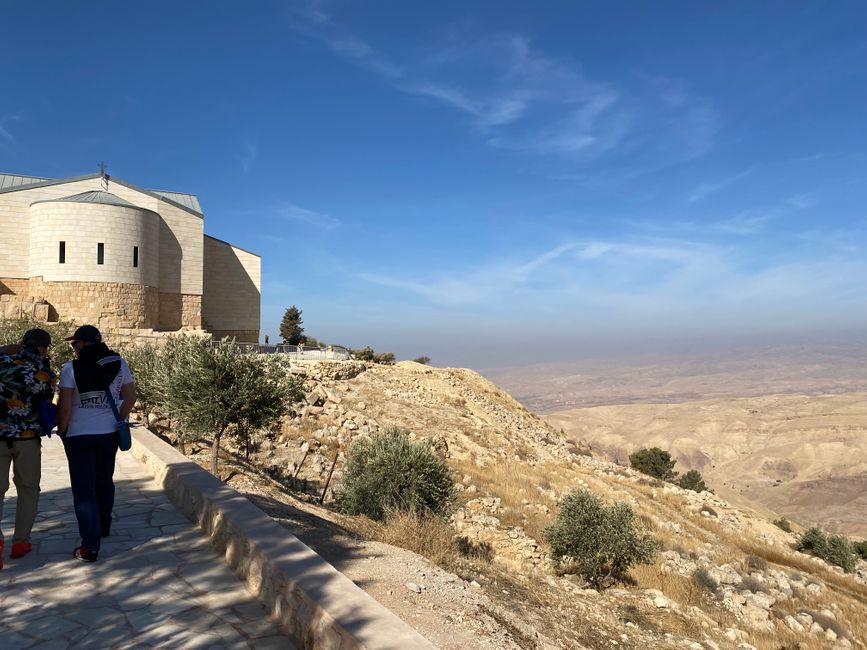
Hōʻike huakaʻi Ioredāne
